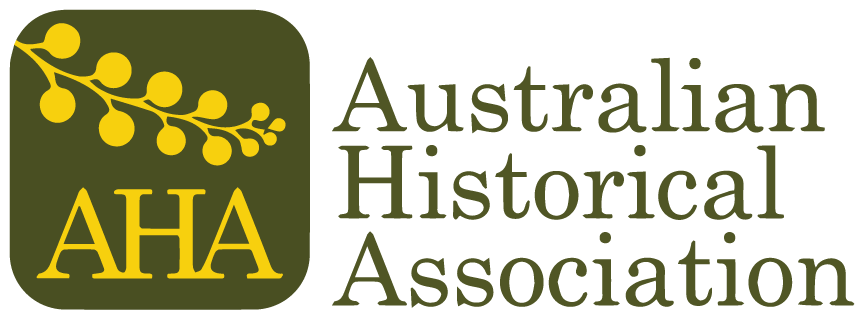I’m sure that many of you are still reflecting on our wonderful conference in Adelaide, hosted on beautiful Kaurna country by the team at Flinders University. On behalf of all AHA members, I’d like to thank the Flinders conference team, led by Alessandro Antonello and including Penny Edmonds, Matt Fitzpatrick, Prudence Flowers, Cath Kevin, Micaela Pattison and Andrekos Varnava, for convening the conference with such energy, care and attention to detail. The keynotes, by Vanessa Hearman, Frank Bongiorno, Natalie Harkin and Julia Laite all spoke powerfully to our profession in the present moment. And hopefully we have a new AHA tradition on our hands with the inaugural feminist dance! It was an energising and restorative week of scholarship and connection and we look forward to next year’s conference in Townsville.
I’d like to thank the outgoing members of the AHA executive committee for their hard work on behalf of AHA members: Jane Lydon, Kristyn Harman, Rohan Howitt, Ebony Nilsson, Ruby Ekkel and Simon Farley, as well as outgoing Secretary, Ben Jones, outgoing Treasurer, Romain Fathi, and Past President Melanie Oppenheimer, who was honoured with Life Membership of the AHA at this year’s conference dinner. Special thanks to our outgoing President, Frank Bongiorno, for his robust advocacy and wise leadership of the AHA over the past two years, and welcome to incoming Vice-President Kate Fullagar, Treasurer Peter Hobbins, and Secretary Richard Scully as well as our new Executive Committee. We’re very grateful to you all for your time and commitment to the AHA.
The AHA performs a number of crucial roles within our profession. We recognise outstanding scholarship through our journal, our prizes and awards (and congratulations again to all the award winners announced at the conference dinner), we provide avenues for historians to discuss important issues (such as learning and teaching, research and publishing), and we advocate for history and historians, both within the profession (through our postgraduate and ECR portfolios) and in wider public life, including on matters of policy and funding. In the President’s plenary at the recent Flinders conference, we heard that the number of academic historians in Australian universities has fallen by 20% since 2016; student enrolments have fallen by a similar amount. HDR enrolments have dropped by around 45% over the same period. This is a crisis that requires our urgent attention, and it is a crisis I believe we can, and must, address together. I look forward to working with the new Executive Committee, and with our membership, to continue the AHA’s important work.
Professor Michelle Arrow
11 July 2024
